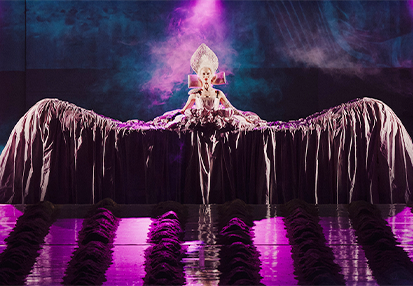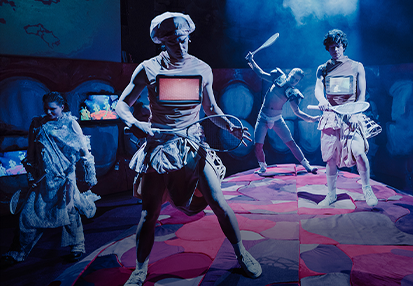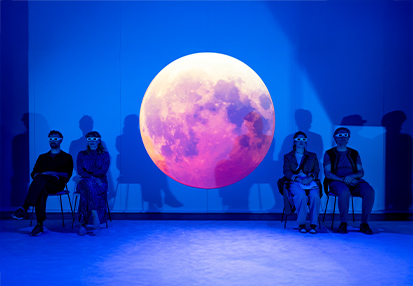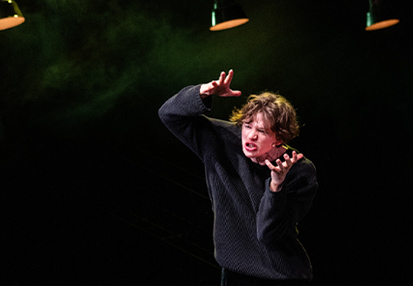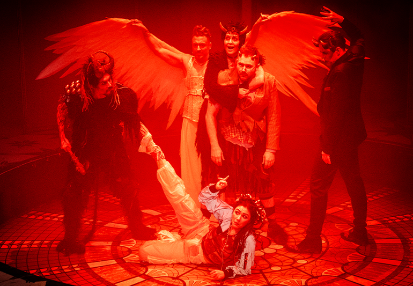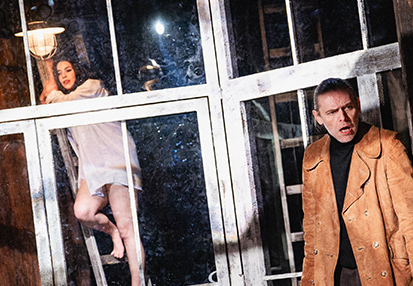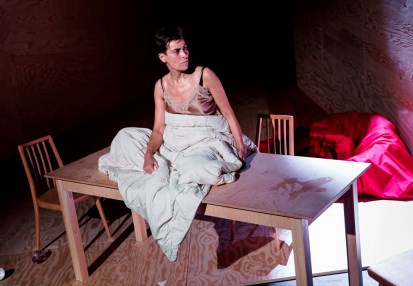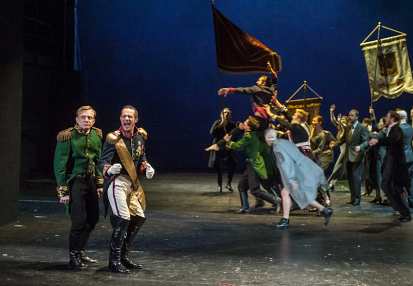Rewizor
reżyseria: Bohdan Korzeniewski
dekoracje i kostiumy: Jan Kosiński
Obsada:
Skwoźnik Dmuchanowski, rewizor Jan Kurnakowicz
Anna, jego żona Wanda Łuczycka
Maria, jego córka Barbara Fijewska / Maria Krawczykówna
Chłopow, kurator szkół Władysław Grabowski / Wiktor Biegański
Jego żona Maria Miedzińska
Liapkin-Tiapkin, sędzia Władysław Bracki
Ziemlianika, kurator zakładów dobroczynności Zygmunt Chmielewski
Szpiekin, pocztmistrz Ludwik Tatarski / Jan Żardecki
Bobczyński, obywatel miasta Stanisław Daczyński / Tadeusz Surowa
Dobczyński, obywatel miasta Edward Fertner
Chlestakow, urzędnik z Petersburga Tadeusz Fijewski
Osip, jego służący Adam Mikołajewski / Zygmunt Maciejewski
Hübner, lekarz powiatowy Jerzy Krasowski
Liuliukow Rudolf Gołębiowski
Rastakowski Bolesław Brodel-Brodelkiewicz
Korobkin Julian Składanek / Janusz Bylczyński
Jego żona Halina Głuszkówna
Uchowiertow, naczelnik policji Zygmunt Kęstowicz
Swistunow, policjant Zdzisław Szymański
Dzierżymorda, policjant Wilhelm Wichurski
Abdulin, kupiec Zygmunt Maciejewski
Kupiec I Zbigniew Kryński
Kupiec II Klemens Puchniewski
Poszlepkina, ślusarzowa Stanisława Perzanowska
Żona podoficera Danuta Wodyńska
Awdotia Zofia Białkowska
Miszka, służący horodniczego Piotr Kurowski
Służący w zajeździe Edward Dziewoński
Żandarm Jerzy Kawka
Goście Helena Jaszczołt-Sulima, Krystyna Kamieńska, Barbara Klukowska, Irena Krasnowiecka, Irena Laskowska, Wacław Izdebski, Jan Żardecki
Kupcy i mieszczanie zespół techniczny Teatru Narodowego
Galeria:

Edward Fertner (Dobczyński), Jan Kurnakowicz (Skwoźnik Dmuchanowski), Stanisław Daczyński (Bobczyński), Tadeusz Fijewski (Chlestakow), Adam Mikołajewski (Osip). Fot. Edward Hartwig / Archiwum Artystyczne Teatru Narodowego
Bibliografia:
Karolina Beylin, „Express Wieczorny” 1952, nr 168
August Grodzicki, „Teatr” 1952, nr 14, s. 5-6
Jankowska, „Słowo Powszechne” 1952, nr 176
Kor., „Tygodnik Powszechny” 1952, nr 37
Wojciech Natanson, „Głos Pracy” 1952, nr 165
Stefania Podhorska-Okołów, „Kurier Codzienny” 1952, nr 171
Konstanty Puzyna, „Życie Literackie” 1952, nr 17, s. 3
Jan Alfred Szczepański, „Życie Literackie” 1952, nr 20, s. 12-13
Roman Szydłowski, „Przyjaźń” 1952, nr 33
Roman Szydłowski, „Trybuna Ludu” 1952, nr 194
Up., „Wola Ludu” 1952, nr 171
Bolesław Wójcicki, „Życie Warszawy” 1952, nr 166
Juliusz Żuławski, „Twórczość” 1952 z. 10, s. 185-189
„Tygodnik Powszechny” 1952, nr 48
